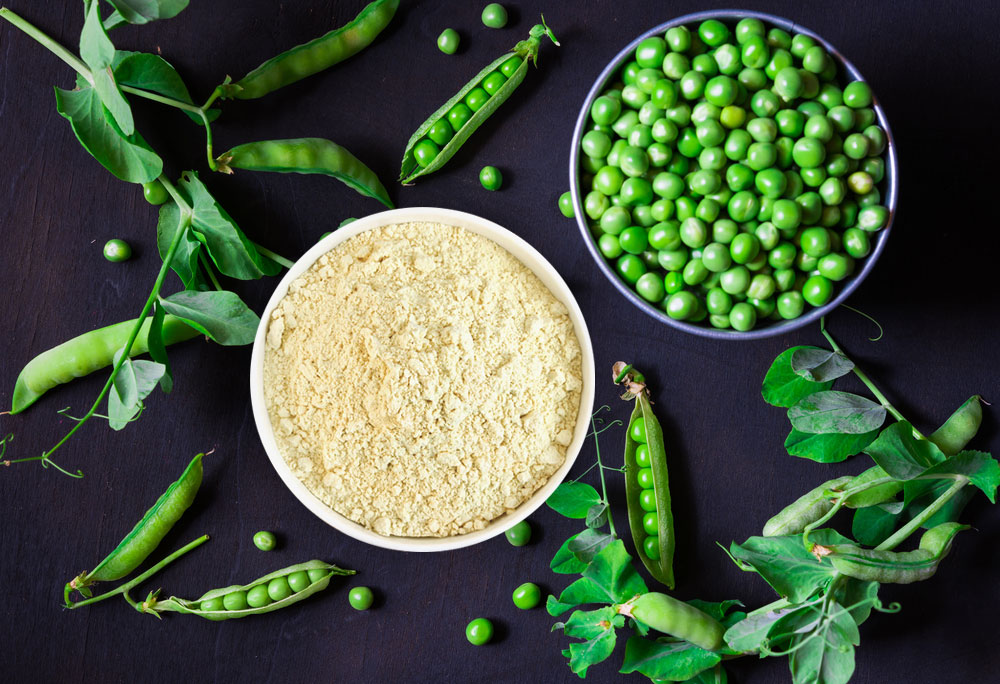Plant-based proteins have gained immense popularity over the past few years due to the rising health and environmental consciousness among people. One of the most versatile plant proteins available is pea protein. Made from yellow peas, pea protein is a complete source of protein that provides all the essential amino acids our bodies need.
Nutritional Profile of Pea Protein
Pea protein is low in calories and fat but high in protein content. An average serving of pea protein powder contains about 110-120 calories, 1-2 grams of fat and 20-25 grams of protein.
It is a complete protein which means it contains all nine essential amino acids our bodies cannot produce themselves and need to obtain from diet. Some key amino acids present in pea protein include leucine, isoleucine, valine, lysine, methionine and tryptophan.
Pea Protein is also loaded with vitamins and minerals. It is an excellent source of iron, zinc, magnesium, copper, manganese and omega-3 fatty acids. It also contains soluble and insoluble fibers that promote gut and heart health. The nutritional profile of pea protein makes it a healthy and sustainable choice as a protein supplement.
Health Benefits of Pea Protein
– Muscle Building and Recovery: Pea protein stimulates muscle protein synthesis and promotes muscle recovery after intense workouts due to its balanced amino acid profile. It can help build and maintain lean muscle mass when consumed along with strength training.
– Heart Health: High fiber and omega-3 content in pea protein helps lower LDL (bad) cholesterol levels and regulate blood pressure. This reduces the risk of heart diseases, strokes and other cardiac issues.
– Blood Sugar Control: The high fiber and protein content in pea protein helps stabilize blood sugar levels and keep you feeling full for long. This makes it suitable for diabetics and those watching their carb and calorie intake.
– Digestive Health: Being rich in soluble fibers, pea protein supports optimal digestive health by promoting regular bowel movements and preventing constipation. It also feeds the beneficial bacteria in our gut.
– Weight Management: Pea protein is low in calories and high in protein. This makes it very filling and satisfying. Its ability to increase metabolism and regulate appetite also aids in weight loss and maintenance efforts.
Forms and Products with Pea Protein
Some popular forms and products containing pea protein include:
– Pea Protein Powder: Highly versatile powder form that can be added to shakes, smoothies, oats, baked goods, etc. Available in different flavor varieties.
– Pea Protein Pasta: Gluten-free pasta made from pea protein that provides lasting energy and fiber. A great source of plant-based protein.
– Pea Milk: Lactose-free, vegan non-dairy milk made from yellow peas. Rich in nutrients and protein content. Great for cereal, coffee, cooking and more.
– Pea Protein Bars: Convenient on-the-go snack bars containing 10-15g protein from peas. Better option than sugar-laden traditional bars.
– Pea Protein Crisps: Thin crispy crackers made with pea flour and protein. Low in carbs and calories, ideal for snacking.
– Pea Burgers/Meat Substitutes: Vegan meat alternatives for burgers, nuggets, sausages etc. that deliver protein and fiber. Help reduce meat consumption.
– Pea protein is also available in combo supplements with other protein sources like brown rice, hemp etc. Gives a more balanced nutritional profile.
Advantages Over Whey and Soy Protein
Compared to animal-based whey protein and soy protein, pea protein has some additional benefits:
– Completely plant-based and vegan friendly. Suitable for people avoiding dairy and soy.
– More sustainable and environmentally friendly choice with lower carbon footprint than whey and soy.
– Easy to digest and hypoallergenic. Less likely to cause digestive discomfort, bloating or allergies.
– Free from hormones, antibiotics and cholesterol associated with whey and dairy products.
– Versatile ingredient that can be added to both savory and sweet recipes without changing flavor and texture.
– Studies show it may provide additional nutritional benefits like reducing LDL cholesterol and managing blood sugar.
– Affordable option compared to grass-fed whey and easily available in most grocery stores.
While pea protein is a complete protein on its own, blending it with other protein sources like rice, pumpkin, hemp etc. can provide an even more well-rounded amino acid profile.
As the demand for plant-based sustainable proteins rise globally, pea protein has emerged as a front-runner and is one of the healthiest and most versatile protein supplements available today. It offers both nutritional and environmental benefits and complements active lifestyles. With its growing popularity and accessibility, pea protein is poised to revolutionize the future of plant-based nutrition.
*Note:
1. Source: Coherent Market Insights, Public sources, Desk research
2. We have leveraged AI tools to mine information and compile it

